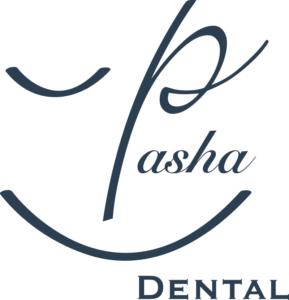Your TMJ is also composed of supporting soft tissues, including muscles and ligaments. Ligaments are soft tissues that connect bone to bone and are responsible for providing stability to the TMJ. Recent studies have found that certain ligaments, specifically the oto-mandibular ligaments, can affect the middle ear structure equilibrium causing tinnitus, ear pain, dizziness, and hearing impairment.
The TMJ muscles are responsible for moving your jaw forward and backward, side to side, and open and closed. A combination of all these motions are essential for speaking and eating properly. One of the most common jaw muscles associated with TMJ pain is the masseter muscle, which is the primary chewing muscle that lies just under your cheeks. The masseter muscle is also responsible for clenching and teeth grinding.
TMJ disorders develop when the various structures of the TMJ do not function properly. Possible causes include arthritis, dislocation, injury, tooth and jaw alignment, or stress and teeth grinding. To restore proper function to your jaw and alleviate TMJ disorder symptoms, Pasha Dental offers some of the best TMJ treatment in Brooklyn, NY.
Did You Know?
The masseter muscle is the strongest muscle in the human body pound for pound and can apply about 150 lbs of force between the upper and lower teeth. However, because the muscle is fanned out diagonally over several tendons, it is considered to be a “low gear” muscle. This means that the masseter muscle provides chewing power slowly, but powerfully.
Frequently Asked Questions
What causes TMJ disorders to develop?
TMJ disorders can develop when the various structures that make up the TMJ are not functioning properly. Improper jaw function can be the result of arthritis, jaw injury, teeth or bite misalignment, or stress and teeth grinding.
- Arthritis:There are several different types of arthritis that can affect the TMJ including infectious arthritis, traumatic arthritis, rheumatoid arthritis, and secondary degenerative arthritis. However, the most common arthritis is osteoarthritis, which is usually found in patients over 50. With osteoarthritis, a hole develops in the articular disc as a result of wear. This hole allows for bone on bone contact during movement, causing facial pain and joint inflammation.
- Jaw injury:Old or current injuries can cause TMJ disorder symptoms to develop. Old injuries, in particular, can cause traumatic or secondary degenerative arthritis. New injuries, especially dislocation, can cause the jaw to be misaligned or compromised resulting in TMJ disorder symptoms.
- Teeth or bite misalignment:The ideal bite should consist of the top teeth sitting just slightly outside of the lower teeth. An overbite occurs when the upper teeth hang too far past the lower teeth. An underbite occurs when the lower teeth sit further forward than the upper teeth. Both types of bites can cause stress on the structures that make up the TMJ. Teeth that are misaligned can also affect your entire bite and cause your jaw to be misaligned.
- Teeth grinding or clenching (bruxism):Usually associated with stress, teeth grinding or clenching can occur while awake or sleeping, however most teeth grinding and clenching has been found to occur at night. Because the masseter is such a strong muscle, the force caused by bruxism can be up to six times the force of chewing. The average chewing force is about 150 lbs per square inch, meaning that bruxism can apply a force of up to 900 lbs per square inch on your teeth and jaw.
Additionally, there are certain risk factors that can increase your chances of developing TMJ disorders. These can include:
- Genetics: There may be a genetic component to TMJ disorder and you may be more likely to develop TMJ if an immediate family member also has a TMJ disorder
- Gender: Women are more likely to develop TMJ disorders
- Age: Symptoms generally develop between 30 and 50 years of age.
- Jaw injury
- Arthritis: Arthritis can place additional strain on other TMJ structures
- High-stress lifestyle: Stress causes muscle tension and can also cause teeth grinding or clenching
- Sleep apnea: Reduced oxygen causes you to sleep with your mouth open, which places additional strain on your jaw joint and muscles. Recent research also suggests that TMJ can cause sleep apnea. If you have sleep apnea, treating your TMJ disorder may also help improve your sleep apnea.
Do I need TMJ disorder treatment?
You may need TMJ disorder treatment if you have been experiencing symptoms of TMJ disorder. Some possible symptoms of TMJ disorder can include:
- Headaches
- Jaw pain, specifically around the joint
- Clicking, popping, or grinding in the jaw joint
- Pain or stiffness in the neck
- Shoulder or back pain
- Pain in the temple area
- Restricted jaw movement or an inability to fully open your mouth
- Earaches or tinnitus (ringing in the ears)
- Dizziness or vertigo
If you have been experiencing any symptoms of TMJ disorders, then you will want to schedule a consultation with one of the best dentists in Brooklyn, NYC. Dr. Pasha provides top dental care at his dental clinic in Brooklyn, Pasha Dental. At your appointment, Dr. Pasha will evaluate your bite, discuss your symptoms, and develop a personal dental treatment plan.
What TMJ treatments does Dr. Pasha provide?
Dr. Pasha can provide a number of different treatments to alleviate your TMJ disorder symptoms. However, the most common TMJ treatment is to have a custom night guard fabricated. Custom night guards generally alleviate TMJ disorders symptoms in about 85% of Dr. Pasha’s patients.
Night guards, also known as dental splints, are an ideal treatment for most cases of TMJ disorders because they can either stabilize or reposition the jaw. This alleviates jaw pain, reduces the frequency and severity of headaches, reduces neck pain, protects the teeth from bruxism, and allows for the correct positioning of the condyle in the TMJ socket. The type of night guard Dr. Pasha recommends will depend on your wear marks and symptoms. There are two main types of night guards: stabilizing and repositioning.
Stabilizing night guards cover your teeth and prevent you from being able to clench or grind your teeth in your sleep. This alleviates tension in the masseter muscle and prevents the overuse or strain of this muscle.
Examples of stabilization splints include:
- Tanner
- Centric relation
- Flat Plane
Repositioning night guards work by holding the jaw in a certain position, allowing the teeth to meet evenly and reducing stress on the individual structures. Some repositioning splints can also use ramps or indentations to limit mandible movement in order to prevent detrimental motion.
Examples of repositioning splints include:
- Anterior repositioning appliance (ARA)
Another aspect of treating TMJ deals with identifying and reducing sources of stress in your everyday life. Relaxation techniques such as yoga, deep breathing, mindfulness, meditation, and guided imagery can help your body to relax and reduce tension in your facial muscles.
What can I expect during my TMJ disorder appointment at Pasha Dental?
During your appointment, Dr. Pasha will begin by asking you about your symptoms and performing an oral exam. Dr. Pasha has a tiny video camera mounted to his glasses, so you will be able to follow along during your oral exam. During your oral exam, Dr. Pasha will assess your individual need by evaluating the wear patterns on your teeth. These wear patterns will show Dr. Pasha where your teeth are absorbing the most amounts of force.
If Dr. Pasha decides a night guard is the best treatment for your TMJ disorder symptoms, then he will take a digital scan of your mouth to send to a dental lab. This dental lab will fabricate your customized night guard. Once your night guard has arrived, Dr. Pasha will ensure that it fits properly. He will also provide you with instructions on its use and care.
When starting TMJ treatment with a night guard, you will need to return Dr. Pasha’s dental office in Brooklyn periodically for adjustments to your night guard. These adjustments are necessary as your mouth will gradually change shape once the muscle tension and inflammation begin to decrease. At each appointment, Dr. Pasha will evaluate the wear marks on your night guard and make adjustments as necessary. Once your symptoms begin to improve, your appointments can be spaced further apart.
Dr. Pasha Javaheri Saatchi provides friendly, compassionate dental services at the forefront of dental technology to the Brooklyn, NY area as well as to Staten Island, Queens, and Manhattan. To experience the best dental care in NYC, schedule a consultation today at Pasha Dental.



